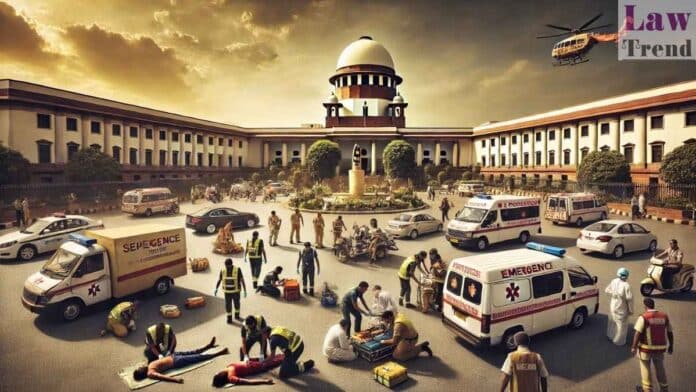The Supreme Court has ruled that when determining compensation under the Motor Vehicles Act (MV Act) for the death of a government employee, Tribunals must deduct the financial assistance payable under the Haryana Compensation Assistance to the Dependents of Deceased Government Employees Rules, 2006 (the “2006 Rules”) from the total compensation assessed for loss of
To Read More Please Subscribe to VIP Membership for Unlimited Access to All the Articles, Download Available Copies of Judgments/Order, Acess to Central/State Bare Acts, Advertisement Free Content, Access to More than 4000 Legal Drafts( Readymade Editable Formats of Suits, Petitions, Writs, Legal Notices, Divorce Petitions, 138 Notices, Bail Applications etc.) in Hindi and English.




